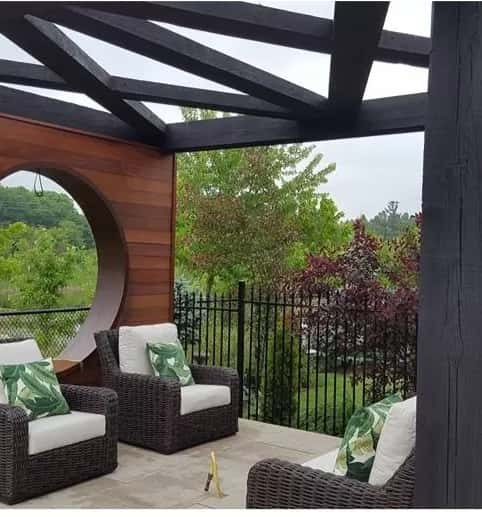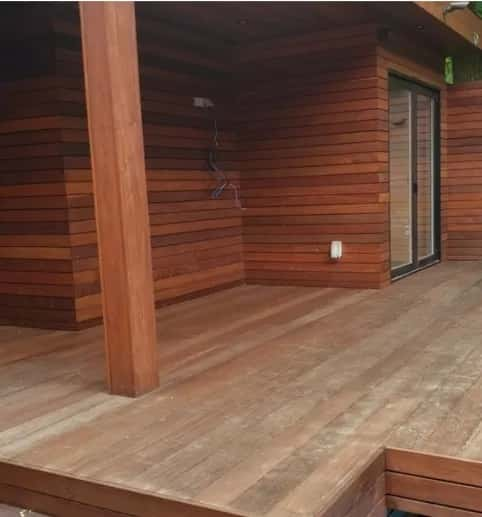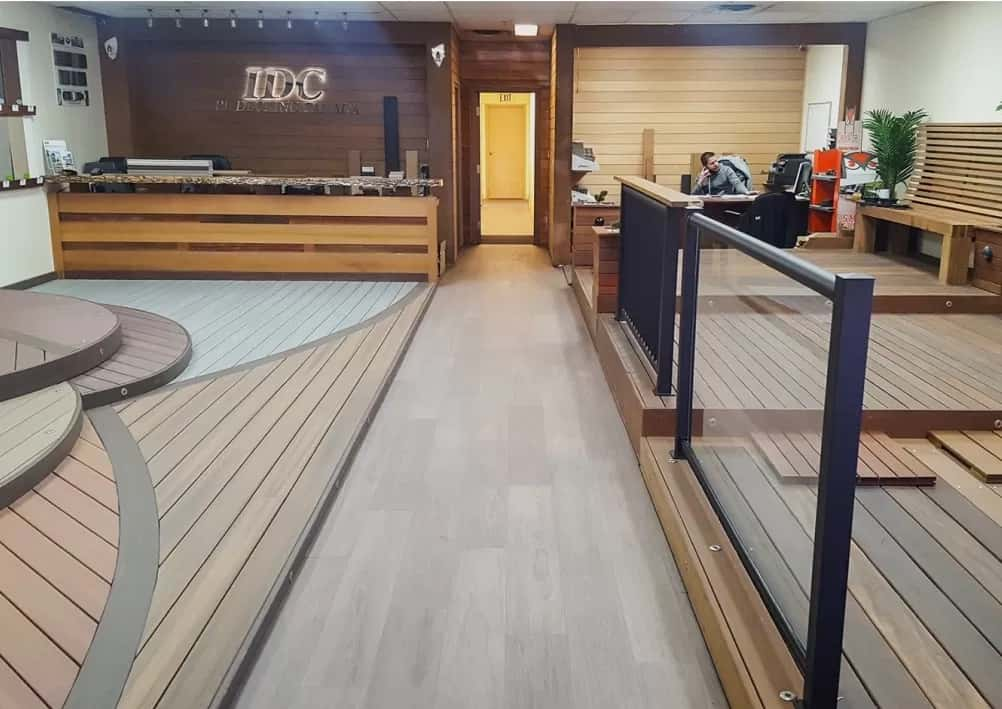



Questions To Ask Your Deck Contractor
-
It is important to get an experienced contractor and many companies simply lie about the time they have been in business. There are few ways to check this information – check the age of their company domain, run the company name through the CRA database or look at the time stamp on the reviews.
-
A typical source would be Google or Homestars. Some companies have fake reviews on Google, Homestars does a better job at filtering our fake reviews. Do not be fooled by “many reviews” you can have one company doing many small projects and working extra hard to get reviews, giving homeowners incentives to write reviews while another working on a few, large projects a year and not putting any effort in collecting reviews. Pay attention to reviews by people who have similar projects completed to what you are looking for.
-
If the company tells you you don’t need a permit, when in fact you do, it’s a red flag. If your deck is over 100 sq. ft. in size OR over 24” above grade OR attached to the house – you most definitely need a building permit in Ontario. If the company tells you that you need a permit, but not to worry about it and tries to avoid it – make sure they also tell you that you as a homeowner are responsible for any consequences relating to building without a permit. It is not the contractor’s responsibility to obtain the permit, but the homeowners. In most cases, when the project is complete and the homeowner faces an issue relating to the deck permit (i.e. when a neighbour complains or when they are selling the house) – the deck company that was paid long time ago will not get involved. We have seen many cases where the contractors first assure the client that “it will be fine” and later on disappear when the day of trouble comes. Getting the building permit is one of the best ways to have insurance that the deck will be built properly. Without the permit – the contractor can cut many corners and the homeowner would not even know about it.
-
It would be nice to ask for those certificates, should a serious accident take place on your property – it’s good to know you are covered.
-
It would be best if the company could provide a long list of available names and allow you to choose a few to get in contact with. It is understandable that calling 20 people would put too much strain on the previous clients, but calling a couple of people from a large available pool – is a good idea. Also, keep in mind, that even the worst companies are able to produce 2-3 good references. I think it is also important to respect the privacy of the previous clients, so I suggest only calling the previous references when there is nothing else holding you back from signing up with the company. Do not make your decision on the deck company based on the references, it would take up too much of the previous clients’ time.
-
It is important to discuss that beforehand. Many possible issues can come up, but these things are best discussed first. If for instance the project is expected to take 4 weeks, but after 8 weeks it is still not completed – it would be reasonable to bring in another company at this point to complete the project and adjust the final billings accordingly. If the situation is such that no other company can do it quicker and the delays are outside of the control of the contractor – the homeowner needs to understand that also. The expectation from the contractor is such that he is always trying his best to push the project forward and there is no other deck company that can do it better.
-
It is best to pay “in good faith” no more than 10% of the project value. When you sign up and reserve a date for the start of your project, you should pay no more than 10%. After the project starts, a reasonable payment schedule would allow the homeowner to pay after material is delivered and progress is made on site. The final payment should also be around 10% – in this case the contractor is completely finished and he is trusting you to make the 10% payment. Do not pay for the project until it is 100% complete and the site is cleaned. If you do, you may be chasing after your contractor for a long time for small touch ups.
-
Ask for pictures, possible locations where these projects were completed. If for example you are looking to get a deck done with composite decking materials of a rare brand such as Zuri and with custom metal railings and custom tempered glass – see if there is a project that a potential contractor has completed that would illustrate his competency in this field. The contractor may have rave reviews online, but building mostly small pressure treated decks and he has never worked with a rare composite or PVC material and has never worked with custom glass and metal.
-
Ask for specifics of the warranty coverage and see if material and labour is included. Important items to keep in mind is possible shift in the foundation, wood warping which results in structural damage, fasteners coming apart, pieces falling off due to thermal expansion and contraction. Ask the contractor what warranty issues they had to deal in the past. We have been in business for 15 years and each year we learn something new in regard to how the decks should be installed when we receive a call back. About 10-20% of the customers will typically call back for a repair. If the contractor tells you they never have any call backs – it is a red flag.
-
You want to hear that a team of at least 2 people would be assigned to your project and they will work on your site every day, when there is work to be done. There may be gaps in the projects when waiting for custom made materials or inspection results, but when the work is there – the expectation is that the team would be working consistently. Some companies overbook and they work two job sites simultaneously, running between two sites to keep up with the promises they made initially. Or what some companies do is they “squeeze in” a client who is willing to pay the extra dollar to get their deck started sooner and as a result those clients who have been waiting patiently for their project to start – suffer.
